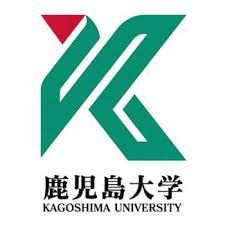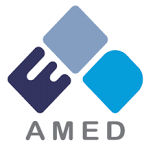预约演示
更新于:2025-08-07
Surv.m-CRA-1
更新于:2025-08-07
概要
基本信息
非在研机构- |
最高研发阶段临床1期 |
首次获批日期- |
最高研发阶段(中国)- |
特殊审评- |
登录后查看时间轴
关联
1
项与 Surv.m-CRA-1 相关的临床试验JPRN-jRCT2073210118
Phase II trial of Survivin-responsive conditionally replicating adenovirus (Surv.m-CRA-1) by repeated local administration in patients with advanced primary malignant bone tumor. - SURV-B-study
开始日期2022-01-22 |
申办/合作机构 |
100 项与 Surv.m-CRA-1 相关的临床结果
登录后查看更多信息
100 项与 Surv.m-CRA-1 相关的转化医学
登录后查看更多信息
100 项与 Surv.m-CRA-1 相关的专利(医药)
登录后查看更多信息
6
项与 Surv.m-CRA-1 相关的文献(医药)2024-12-01·BIOCHEMICAL AND BIOPHYSICAL RESEARCH COMMUNICATIONS
Triple-regulated conditionally replicating adenovirus for effective and safer treatment of peritoneal carcinomatosis
Article
作者: Nishikawaji, Yuya ; Kamisasanuki, Taro ; Matsuda, Eriko ; Kamizono, Junichi ; Kosai, Ken-ichiro ; Kosai, Ken-Ichiro ; Horikawa, Yoshiharu ; Mitsui, Kaoru ; Nagano, Satoshi ; Ikeda, Minako
There is no effective therapy for peritoneal carcinomatosis derived from gastric cancer. An ideal conditionally replicating adenovirus (CRA) that selectively replicates in and kills cancer cells has not been developed for gastric cancer-derived peritoneal carcinomatosis. Using our platform technology of CRA regulated and treating tumors with multiple factors (m-CRA), we generated two types of survivin-responsive m-CRAs, Surv.m-CRA-CMVp and Surv.m-CRA-CEAp, consisting of E1A downstream of the survivin promoter, and the mutated E1B gene downstream of the human cytomegalovirus immediate early gene enhancer/promoter and carcinoembryonic antigen promoter, respectively. Survivin mRNA was expressed at high and undetectable levels in two gastric cancer cells and eleven normal cells, respectively. Carcinoembryonic antigen was expressed at high and very low levels in MKN-45 gastric cancer and normal PrEC cells, respectively, and was not detected in other cell types. While both Surv.m-CRA-CEAp and Surv.m-CRA-CMVp exhibited potent cytotoxic effects on MKN-45 cells in vitro, Surv.m-CRA-CEAp significantly reduced cytotoxicity to normal cells compared to Surv.m-CRA-CMVp. Control mice that received an intraperitoneal injection of MKN-45 cells gradually lost body weight and died of peritoneal carcinomatosis within 98 days. In contrast, all mice receiving Surv.m-CRA-CEAp or Surv.m-CRA-CMVp-infected MKN-45 cells increased their body weight and survived 120 days. In conclusion, the triple-regulated Surv.m-CRA-CEAp enhances cancer specificity (i.e., safety) without reducing the potent therapeutic effect for carcinoembryonic antigen-positive gastric cancer-derived peritoneal carcinomatosis. The modified E1B promoter strategy of CRA facilitates the development of novel CRAs for the effective and safe treatment of a variety of refractory cancers.
2019-03-01·Japanese journal of clinical oncology4区 · 医学
Oncolytic virus therapy in Japan: progress in clinical trials and future perspectives
4区 · 医学
Review
作者: Fukuhara, Hiroshi ; Todo, Tomoki ; Taguchi, Satoru
Oncolytic virus therapy is a promising new option for cancer. It utilizes genetically engineered or naturally occurring viruses that selectively replicate in and kill cancer cells without harming normal cells. T-VEC (talimogene laherparepvec), a second-generation oncolytic herpes simplex virus type 1, was approved by the US Food and Drug Administration for the treatment of inoperable melanoma in 2015 and subsequently approved in Europe in 2016. Other oncolytic viruses using different parental viruses have also been tested in Phase III clinical trials and are ready for drug approval: Pexa-Vec (pexastimogene devacirepvec), an oncolytic vaccinia virus, CG0070, an oncolytic adenovirus, and REOLYSIN (pelareorep), an oncolytic reovirus. In Japan, as of May 2018, several oncolytic viruses have been developed, and some have already proceeded to clinical trials. In this review, we summarize clinical trials assessing oncolytic virus therapy that were conducted or are currently ongoing in Japan, specifically, T-VEC, the abovementioned oncolytic herpes simplex virus type 1, G47Δ, a third-generation oncolytic herpes simplex virus type 1, HF10, a naturally attenuated oncolytic herpes simplex virus type 1, Telomelysin, an oncolytic adenovirus, Surv.m-CRA, another oncolytic adenovirus, and Sendai virus particle. In the near future, oncolytic virus therapy may become an important and major treatment option for cancer in Japan.
2015-01-01·Molecular therapy. Methods & clinical development2区 · 医学
Towards the safer clinical translation of human induced pluripotent stem cell–derived cells to regenerative medicine
2区 · 医学
ArticleOA
作者: Kenzaburo Tani
The development of induced pluripotent stem cell technology would change the paradigm of regenerative medicine using cell or organ transplantation for various kinds of inherited and acquired disorders. In a phase 1 clinical trial (RIKEN) for the treatment of age-related macular degeneration, an autologous human induced pluripotent stem cell (hiPSC)-derived retinal pigmented epithelium sheet was transplanted safely into a Japanese woman in her 70s on 12 September 2014 in Japan. A second transplantation, however, was cancelled because genetic mutations were found in the candidate’s hiPSC-derived cells. The investigators revised their protocol of using an autologous hiPSC-derived retinal pigmented epithelium sheet to using an allogeneic one in their next clinical trial to increase the safety of their retinal pigmented epithelium sheet and reduce the risk of tumorigenicity.1 Although genetic changes do not necessarily cause malignant tumor from hiPSC-derived cells, it is desirable to develop a method which enables us to prepare the transplantable hiPSC-derived cells without oncogenicity. A set of international guidelines for producing clinical-grade hiPSCs as well as their differentiated progeny cells is urgently needed.
Several methods have been reported that may increase the safety and eventually the efficacy of iPSC-based regenerative medicine. The first safety approach eliminates potential oncogenic factors, such as the expression of oncogene c-myc, or integrates the reprogramming transgenes into chromosomes. The latter would be eliminated by using so-called nonintegrating viral vectors. The second safety approach is based on the isolation of desired differentiated cells from other cell types and undifferentiated human pluripotent stem cells (hPSCs), such as the removal of the residual pluripotent cells using fluoresecent activated cell sorting or magnetic beads coated with antibodies against a particular antigen, including SSEA-5 and Claudin-6, and fucose-specific lectin UEA (Ulex europaeus agglutinin)-I. The third safety approach entails the direct targeting and killing of oncogenic cells by using cytotoxic antibody recognizing podocalyxin-like protein-1, a chemical inhibitor of stearoyl-coA desaturase, specific monoclonal antibodies, DNA topoisomerase II inhibitor, and suicide gene therapy under transcriptional control of a pluripotency-related promoter. Although each method has a unique advantage, further preclinical and clinical investigations are required before clinical application.2
Recently, Kosai’s group proposed a fourth safety approach: specific killing of tumorigenic undifferentiated hPSCs using a different methodology. Namely, they demonstrated that conditionally replicating adenoviruses that specifically target cancers using multiple factors (m-CRAs), originally developed as anticancer drugs, may also be useful as novel antitumorigenic agents in hPSC-based therapy. The survivin promoter was more active in undifferentiated hPSCs than the telomerase reverse transcriptase (TERT) promoter, and both promoters were minimally active in differentiated normal cells. Survivin-responsive m-CRA (Surv.m-CRA) killed undifferentiated hPSCs more efficiently than TERT-responsive m-CRAs (Tert.m-CRA); both m-CRAs exhibited efficient viral replication and cytotoxicity in undifferentiated hPSCs, but not in co-cultured differentiated normal cells. Preinfection of hPSCs with Surv.m-CRA or Tert.m-CRA abolished in vivo teratoma formation in a dose-dependent manner following hPSC implantation into mice. The authors concluded that m-CRAs, particularly Surv.m-CRAs, are novel antitumorigenic agents that could facilitate safe clinical applications for hPSC-based regenerative medicine. They have a plan to start first-in-human clinical trials in human cancer patients in Japan using Surv.m-CRA.3
Although the clinical usefulness of these candidate reagents involving Surv.m-CRA technology should be clarified further in clinical trials, one or a combination of the above several reagents would facilitate the clinical translation of hiPSC-derived differentiated cells to clinical regenerative medicine safely and effectively.
1
项与 Surv.m-CRA-1 相关的新闻(医药)2025-08-06
2025年8月5日,Surv-Biopharma株式会社与日本脏器制药株式会社宣布,双方已就溶瘤病毒“Surv.m-CRA-1”签订了一份针对骨软组织肿瘤的日本独家许可协议。
该产品由Surv-Biopharma首席科学官小戝健一郎(鹿儿岛大学教授)独立开发。根据协议,日本脏器制药获得了在日本国内针对骨软组织肿瘤(包括原发性恶性骨肿瘤、恶性软组织肿瘤及转移性骨肿瘤)的独家开发、制造和销售权。
根据协议条款,Surv-Biopharma将根据开发进展和上市后的销售业绩,从日本脏器制药获得包括签约金在内的最高105亿日元总款项。此外,Surv-Biopharma还将根据日本国内的年度销售额获得特许权使用费。
“Surv.m-CRA-1”是一款独特的溶瘤病毒,搭载了Surv-Biopharma独有的“survivin启动子”,该启动子可在癌细胞中特异性激活。因此,该病毒能够在不伤害正常细胞的情况下,仅在癌细胞中增殖并选择性杀灭癌细胞。它被寄予厚望,有望成为一种具备高疗效和高安全性,并能治疗现有疗法无效的癌症干细胞的划时代癌症治疗药物。
目前,Surv-Biopharma已将该病毒的首个适应症定为“原发性恶性骨肿瘤”——一种存在高度未满足医疗需求的罕见癌症,并已在日本完成了II期临床试验。由于试验结果非常理想,目前正准备于2025年10月启动III期临床试验,以期在2027年获得正式批准(本批准),使其成为日本首个获得批准的基因治疗药物。
通过此次合作,拥有骨科领域长期积累的日本脏器制药将与Surv-Biopharma携手合作,加速临床开发、制造和质量管理等工作,力争尽快将Surv.m-CRA-1推向市场。获得批准后,日本脏器制药将利用其在骨科领域的经验和网络,迅速有效地为广大患者提供该药物。
临床2期基因疗法临床3期申请上市
100 项与 Surv.m-CRA-1 相关的药物交易
登录后查看更多信息
研发状态
10 条进展最快的记录, 后查看更多信息
登录
| 适应症 | 最高研发状态 | 国家/地区 | 公司 | 日期 |
|---|---|---|---|---|
| 肿瘤 | 临床1期 | - | - | |
| 肿瘤 | 临床1期 | - | - |
登录后查看更多信息
临床结果
临床结果
适应症
分期
评价
查看全部结果
| 研究 | 分期 | 人群特征 | 评价人数 | 分组 | 结果 | 评价 | 发布日期 |
|---|
No Data | |||||||
登录后查看更多信息
转化医学
使用我们的转化医学数据加速您的研究。
登录
或

药物交易
使用我们的药物交易数据加速您的研究。
登录
或

核心专利
使用我们的核心专利数据促进您的研究。
登录
或

临床分析
紧跟全球注册中心的最新临床试验。
登录
或

批准
利用最新的监管批准信息加速您的研究。
登录
或

特殊审评
只需点击几下即可了解关键药物信息。
登录
或

Eureka LS:
全新生物医药AI Agent 覆盖科研全链路,让突破性发现快人一步
立即开始免费试用!
智慧芽新药情报库是智慧芽专为生命科学人士构建的基于AI的创新药情报平台,助您全方位提升您的研发与决策效率。
立即开始数据试用!
智慧芽新药库数据也通过智慧芽数据服务平台,以API或者数据包形式对外开放,助您更加充分利用智慧芽新药情报信息。
生物序列数据库
生物药研发创新
免费使用
化学结构数据库
小分子化药研发创新
免费使用




